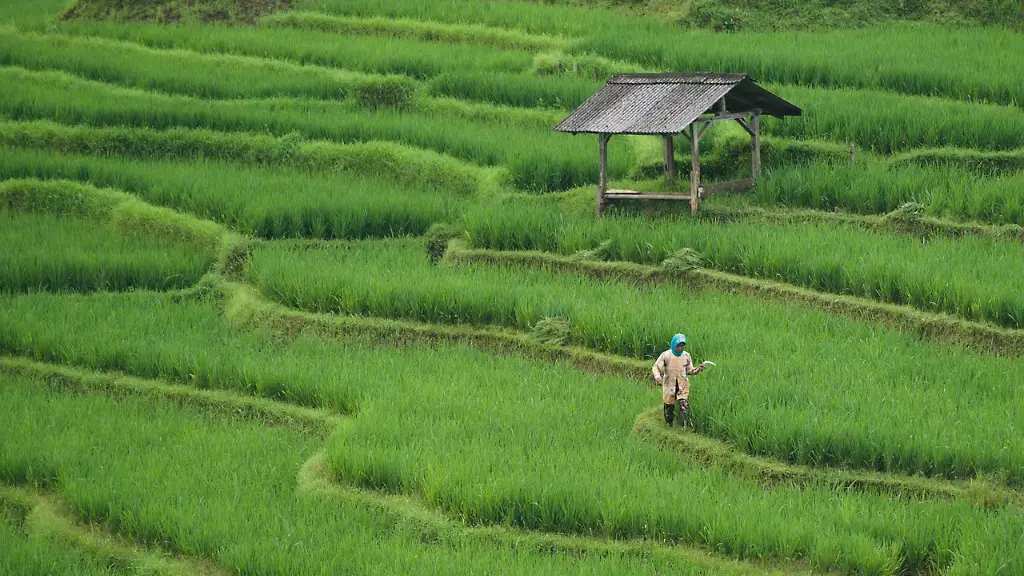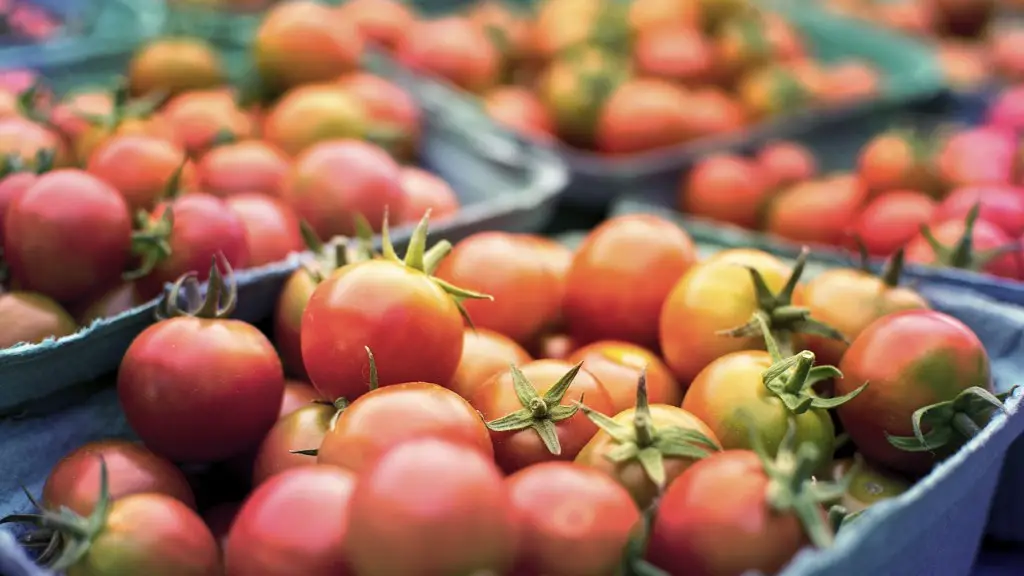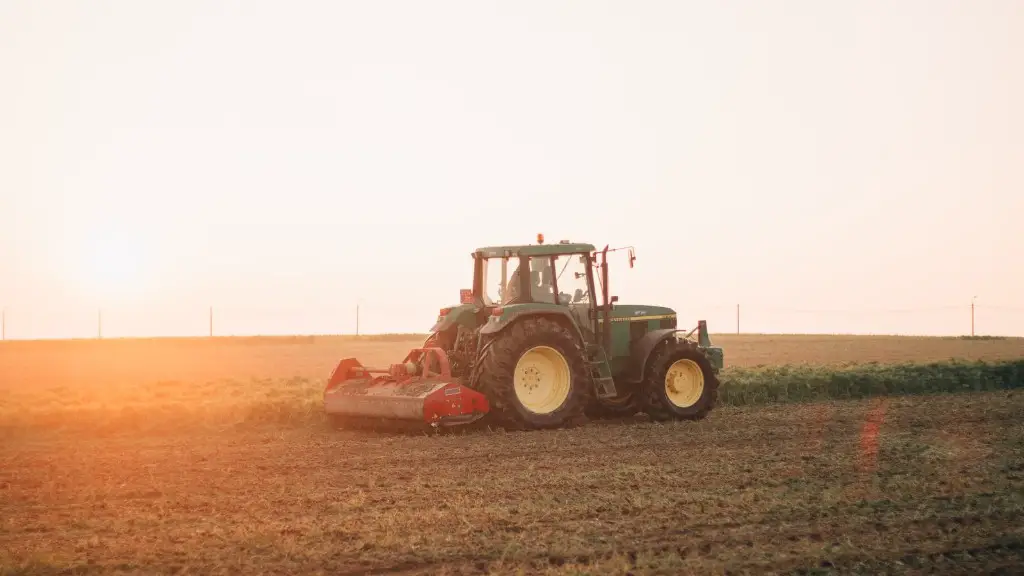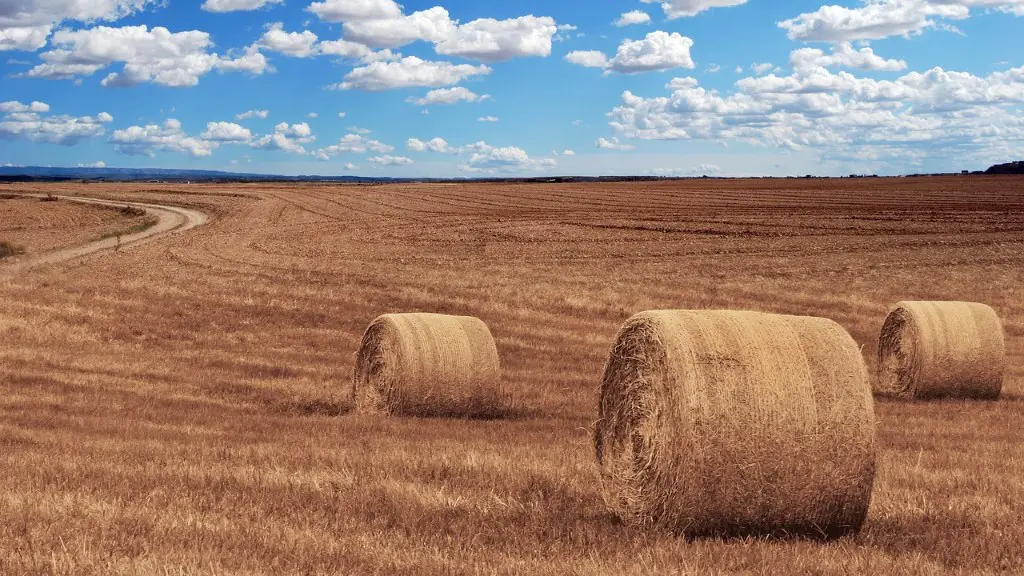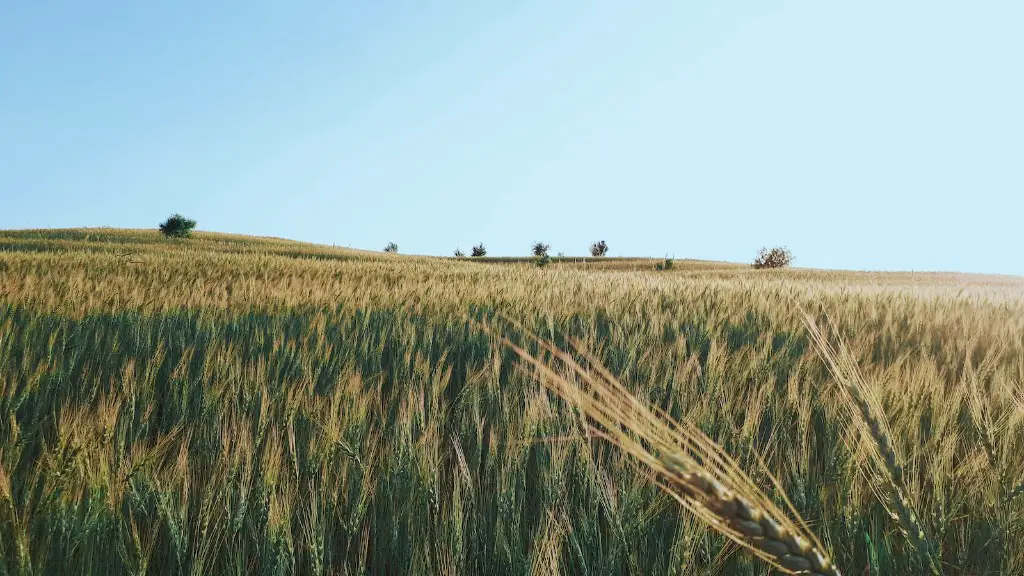Eco Agriculture is a term used to describe a kind of agriculture that is focused on being environmentally sustainable. This type of agriculture strives to produce food and other products in a way that does not damage or degrade the natural environment. Eco Agriculture also works to promote the health and well-being of both the people involved in producing the food, and the consumers who will ultimately eat it.
Eco agriculture is a type of agriculture that is environmentally friendly and sustainable.
What is agriculture eco?
Ecological agriculture is a type of sustainable agriculture that focuses on creating a balance between human activity and the natural world. The goal of ecological agriculture is to create an agricultural system that is in harmony with the environment. This type of agriculture includes practices such as using natural pest control methods, promoting soil health, and using renewable energy sources.
Sustainable agriculture is an approach to food production that is environmentally friendly, socially responsible, and economically viable. There are many different sustainable agriculture methods and farming practices, including permaculture, biodynamic farming, hydroponics and aquaponics, urban agriculture, and agroforestry. Each of these approaches has its own advantages and disadvantages, but all are based on the principles of sustainability.
What is an example of sustainable agriculture
Cover crops and perennials are important for protecting and building soil health. They help prevent erosion, replenish soil nutrients, and keep weeds in check. This reduces the need for fertilizers and herbicides.
While often used interchangeably, ecological and organic farming are not the same. While ecological farming views the soil it works on as a part of a larger ecosystem, organic farming focuses on the final product. Theoretically, organic products could be produced with or without, keeping agroecology in mind.
What are some examples of agroecosystem?
Shifting cultivation is a type of agriculture where farmers clear a piece of land by cutting down trees and burning the vegetation. The land is then used for a few years to grow crops before the farmers move on to a new piece of land. This type of agriculture is often used in tropical countries where the soil is not very fertile.
Traditional rainfed rice systems are another type of traditional agroecosystem. In these systems, farmers grow rice in fields that are not irrigated. The rice is often grown in floodplains or on hillsides, and the farmers rely on rainfall to water the crops.
Home gardens are another type of traditional agroecosystem. Home gardens are small plots of land where families grow a variety of crops for their own consumption. These gardens are often found in tropical countries, and they are a very important source of food for many families.
Traditional shade coffee and cacao systems are also traditional agroecosystems. In these systems, coffee or cacao trees are grown under the shade of taller trees. The shade protects the coffee or cacao trees from the sun, and the taller trees also help to keep the coffee or cacao trees from being blown over by the wind.
An agricultural ecosystem is usually much simpler than a natural ecosystem, because it only contains a few species of organisms that are controlled by humans. The simplicity of an agricultural ecosystem can make it more efficient and productive, but it can also make it more vulnerable to environmental changes and pests.
Is ecological agriculture still exist?
Ecological farming is a type of agriculture that focuses on restoring soil nutrients with natural composting systems. This type of farming also avoids the soil loss from wind and water erosion that is often seen in agricultural regions that are dominated by industrial farming. The concept of ecological farming is gaining popularity in many different parts of the world.
Organic farming is a type of agriculture that focuses on producing food in a way that is environmentally sustainable and healthy for both consumers and producers. Organic farmers use techniques such as crop rotation, cover crops, and compost to improve the fertility of their soil and reduce their reliance on synthetic fertilizers and pesticides.
What are the pros and cons of sustainable agriculture
The advantages of sustainable agriculture appear to be many and varied. Some advantages include cost reduction, pollution control, soil erosion prevention, biodiversity, and social equality. However, there are also some potential downsides to this type of agriculture. For example, it may take farmers longer to carry out their farm operations due to the need to be sustainable.
Sustainable agriculture is a type of agriculture that is focused on minimizing the negative environmental impact of farming practices while still producing enough food to meet the needs of the people. Elements of sustainable agriculture can include permaculture, agroforestry, mixed farming, multiple cropping, and crop rotation.
What are the 4 pillars of sustainable agriculture?
BASF is committed to sustainability in agriculture through its four core pillars: climate smart farming, sustainable solutions, digital farming, and smart stewardship. Agriculture is an important sector of the economy and BASF is committed to supporting it through these sustainability initiatives.
Sustainable agriculture is a rapidly growing field that is important for many reasons. The three main reasons for its importance are: 1) providing enough food for a sharply rising population, 2) protecting the environment, and 3) sustaining the economic viability of agriculture systems.
The world’s population is estimated to reach 9.7 billion by 2050, and sustainable agriculture will be crucial in meeting the food needs of this rapidly growing population. Sustainable agriculture practices are more efficient in terms of water and land use, and they can also help to mitigate and adapt to climate change. In addition, sustainable agriculture can help to preserve biodiversity and protect important ecosystem services.
The economic sustainability of agriculture is also important. In many parts of the world, agriculture is the main source of income and livelihoods. Therefore, it is essential to ensure that agriculture systems are economically viable in the long-term. Sustainable agriculture can help to achieve this by reducing costs, protecting resources, and increasing productivity.
What are the disadvantages of ecological farming
Organic farming involves environmentally friendly practices that result in healthier crops and livestock. However, there are also some disadvantages to organic farming, including the following:
Organic produce costs more since the yield from a land is not as much as what farmers produce through the conventional methods. Also, the production cost is high since a lot of labor and time are involved. There exists a lot of gap in distributing and marketing organic products. Therefore, organic farmers often Struggle to make a profit.
Organic farming also generally requires more land than conventional farming methods, as crops are grown at a slower rate and yields are often lower. This can put a strain on resources, especially in areas where land is already scarce.
Pests and diseases can also be a big problem for organic farmers, as they are often reliant on natural methods of control which can be less effective than chemicals. This can lead to significant crop losses and financial difficulties.
Hydroponics is already used extensively in large-scale commercial farms, with great success. This system of growing plants without soil is thought to be one of the most sustainable farming systems available today, due to its emphasis on water conservation, lack of harmful chemicals and lack of soil damage.
Hydroponics is an excellent way to grow healthy plants and crops, and is something that more farms should consider implementing. This would help to create a more sustainable and environmentally-friendly way of farming.
Why organic farming is not sustainable?
Deforestation is a major problem for the environment, and organic farms are contributing to it. Because organic farmers can’t use synthetic fertilizers, they have to use far more space to grow the same amount of produce. This means that more acres of land are being used for farming, and fewer acres are left for forests. As a result, deforestation is nearly inevitable.
Loss of wetlands
The loss of wetlands is a major environmental problem. Wetlands are critical for the environment because they help to purify water, provide habitat for wildlife, and protect against flooding.
Soil pollution
Soil pollution is a serious environmental problem. Soil pollution can be caused by a variety of things, including pesticides, fertilizers, and other chemicals. Soil pollution can cause problems for plants, animals, and humans.
Water pollution
Water pollution is a serious environmental problem. Water pollution can be caused by a variety of things, including sewage, chemicals, and other pollutants. Water pollution can cause problems for plants, animals, and humans.
Final Words
Eco agriculture is a type of agriculture that focuses on being environmentally sustainable. This means that eco agriculture practices aim to reduce the overall environmental impact of farming, whether that be through the use of more environmentally friendly farming methods, or by working to improve the overall health of the ecosystem.
Eco agriculture is an approach to farming that focuses on sustainable management of natural resources. It is an alternative to traditional farming practices that can have negative impacts on the environment. Eco agriculture is based on the principles of conservation, efficiency, and productivity. It strives to create a balance between environmental and economic sustainability.
